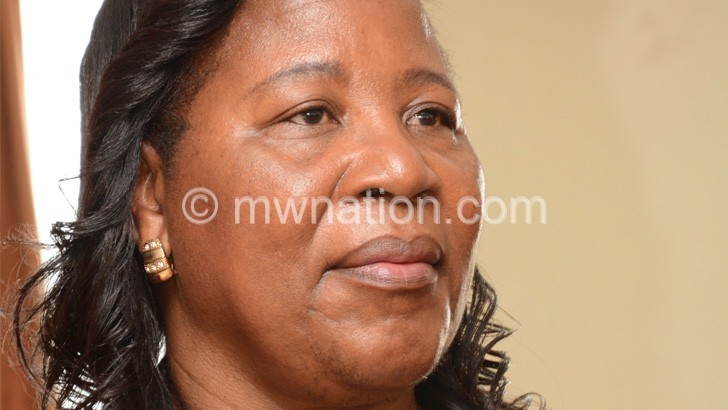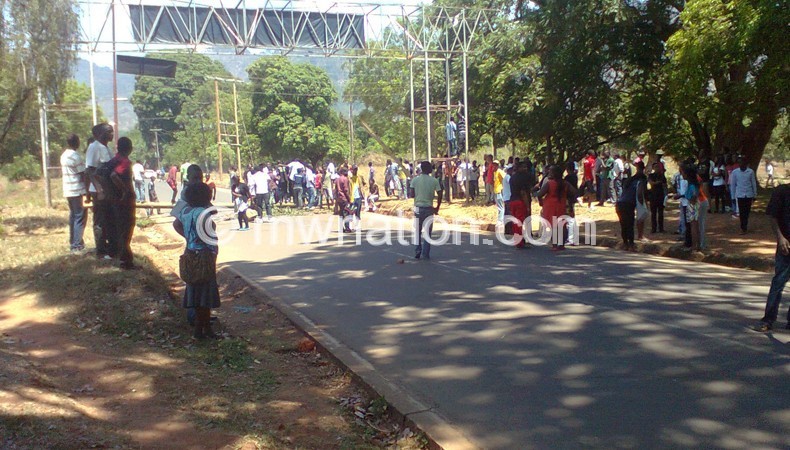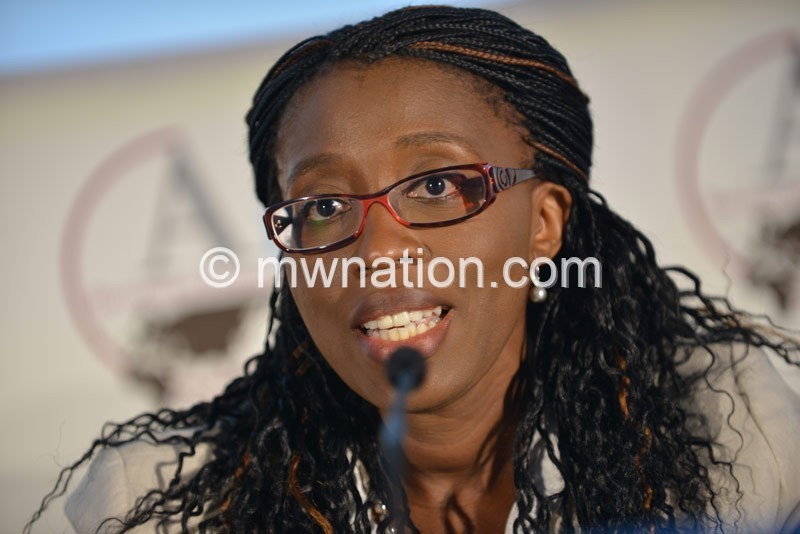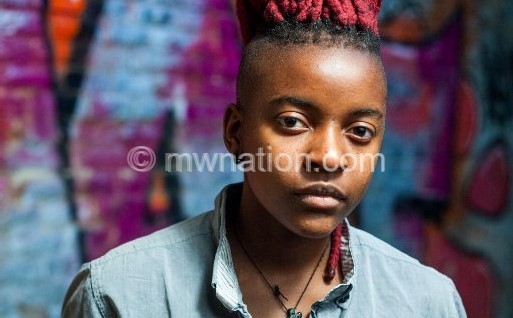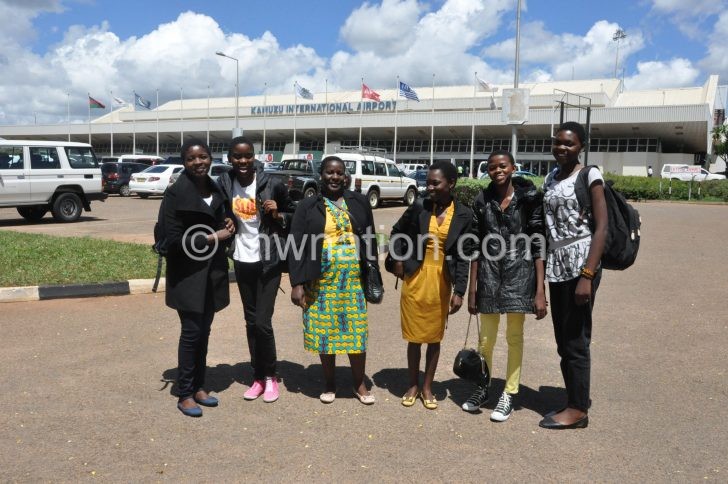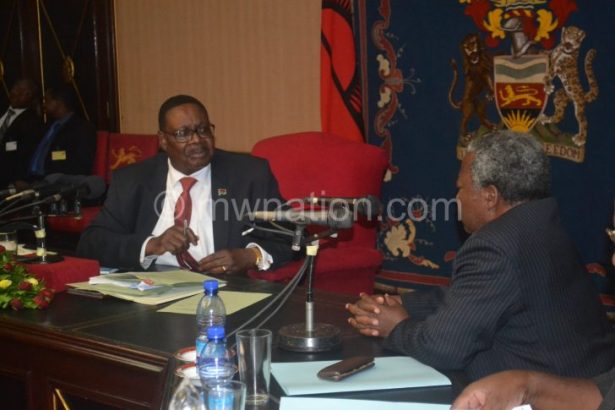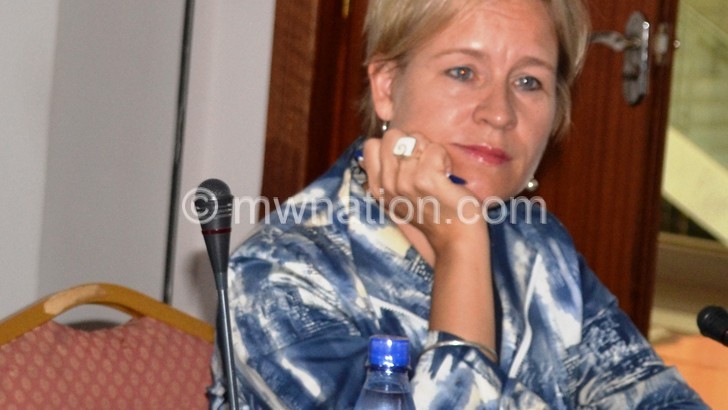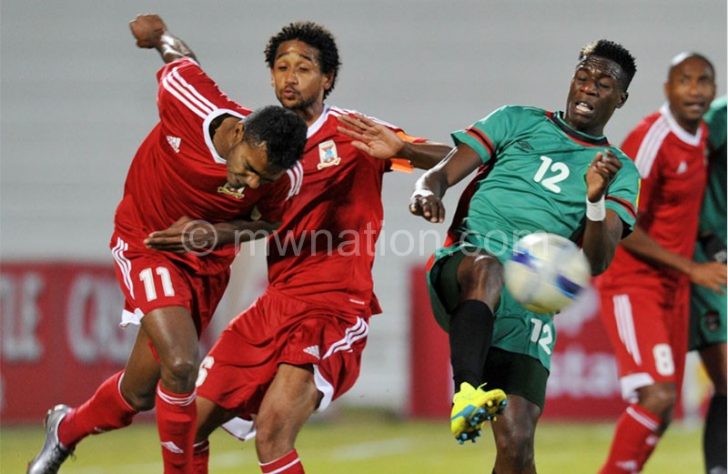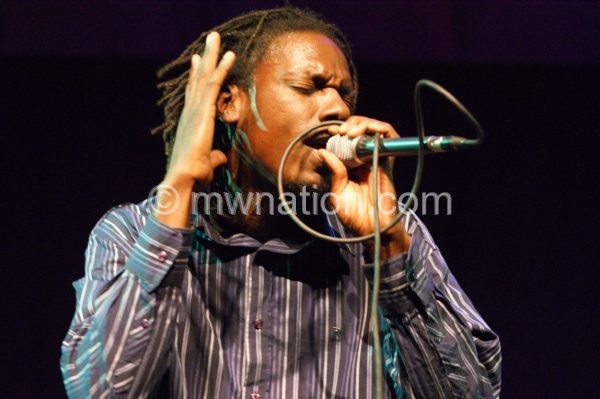The Blantyre City Council (BCC) on Thursday presented a K2.8 billion 2017/2018 draft budget to city residents who among others scrutinised and provided input on the proposed financial plan.
The council has maintained the 2016/2017 budget which was pegged at the same amount.
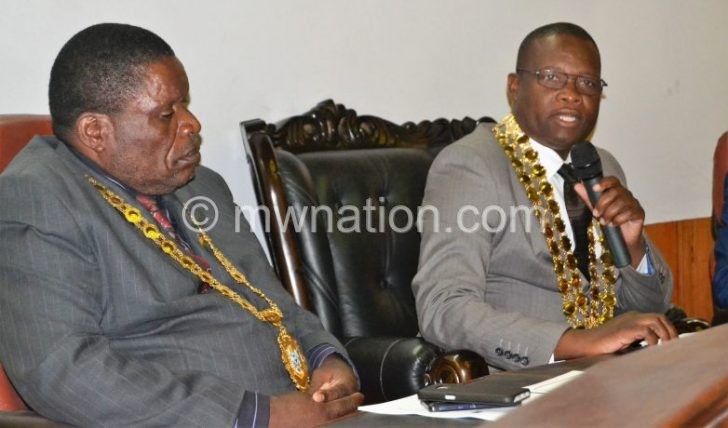
Presenting the budget, chairperson of the finance committee for the council Songwe Kabaghe said major projects to be carried out during the new financial year include among many others, construction and maintenance of roads, construction and rehabilitation of school blocks, rehabilitation of city parks, installation of modern city clocks and street lights, procurement of a hearse and waste management vehicles.
Said Kabhawe: “We plan to construct a one-way traffic system from Blantyre Central Business District (CBD) to Limbe to ease congestion in the city; construct Limbe fire sub-station; automation of revenue collection; review and formulate city bylaws for the good governance of the city and introduction of service charter to ensure 360 degree-feedback from residents.”
He however said the council is facing serious challenges of poor funding and vandalism.
In his speech, Mayor for Blantyre City, councillor Wild Ndipo highlighted achievements in the previous budget which include rehabilitation and construction of school blocks, construction and rehabilitation of a number of roads and installation of street lights.
“Most importantly, let me recognize the corporate world for partnering with us to achieve a lot of initiatives such as the cleaning and greening of the City, beautifying roundabouts and other public places.
I appeal to my fellow residents to jealously guard the facilities and infrastructure that are being put in place,” said Ndipo.
However, some residents expressed reservation towards the budget saying it does not represent what they want.
Stella Chimenya from Namiyango Township said in the previous budget the council promised to construct a health centre in the area but up to now nothing has been done.
She said residents in the area are facing a lot of challenges in accessing medical care as they depend on Bangwe clinic which is far from the area.
Some residents from Nancholi and Manase Townships also bemoaned the absence of a plan to construct a health centre in their area, something they have been asking for from each and every budget.
But Ndipo blamed councillors for the areas for not bringing forward such issues to the council so that they are included in the budget.
Responding to the same, director of health and social services in the city Emmanuel Kanjunjunju said the council also waits the Ministry of Health to give guidance on whether a particular area requires a health centre or not.
Another resident Puleni Chilikumnzako called on the residents to actively engage in expenditure tracking to ensure accountability.
BCC gets funding from government, revenue collection and other donors. Currently, the city has a population of over 950 thousand people.
